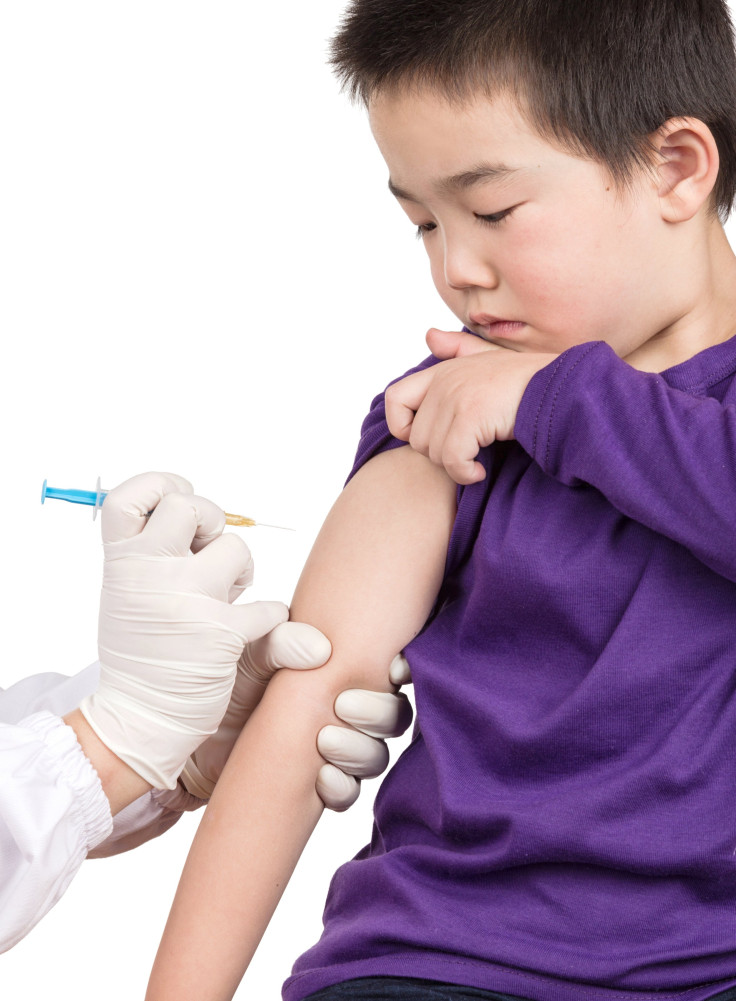Spread Of Infectious Diseases Influenced By ‘Vaccine Scares’ And Public Paranoia

Vaccines are a life-saving invention; a simple way to prevent numerous diseases with just a quick shot. Yet, in the U.S. and around the world, especially in developing countries, large populations of people remain fearful of vaccines and their "risks."
New research shows that society’s beliefs about vaccination has a “direct effect” on the spread of infectious diseases, especially in areas where giving kids vaccines isn't mandatory by law. Researchers from the University of Guelph and the University of Waterloo incorporated social norms and beliefs into predictive mathematical modeling in an attempt to track the link between population behavior and the spread of infectious diseases during vaccine scares.
“Parents are not cold, clinical rationalists who base their decisions only on data,” Professor Chris Bauch of Waterloo’s Faculty of Mathematics, an author of the study, said in a press release. “They are strongly influenced by other parents and what they read. Our research suggests that health officials need to have a really good understanding of the social context to better understand vaccine scares and why people refuse vaccines. To do that, we have to develop predictive tools that also reflect social behavior patterns, or we won’t be able to accurately represent what is happening during vaccine scares.”
Children who are enrolled in public education are required to get certain vaccines, though no federal laws require vaccination. Each state has different requirements. For example, some states require the MMR shot be given to all children who are enrolled in schools, while other states may only require the measles and rubella vaccines. Likewise, each state has different ways of dealing with exemptions. All 50 states allow medical exemptions, and 48 states allow religious exemptions.
Illnesses like hepatitis B, diphtheria, polio, or whooping cough can all be prevented with a vaccine. However, the numbers of parents who apply for exemptions to pediatric vaccination has been increasing, according to the study’s authors. Bauch believes this may steadily lead to less immunized children, where populations may become vulnerable to such diseases.
“If you’ve seen a big drop in vaccine coverage and you’ve seen a surge of disease because of that, you can use these models to predict how long it will take vaccine coverage to recover,” Bauch said in the press release.
Indeed, the public isn't fearful of vaccines just because of a 1998 paper by Dr. Andrew Wakefield (which has been debunked by subsequent research) that began the vaccine-autism scare; it runs much deeper than that. People have been wary of vaccines and their small risks since the very beginning of their common use, over 200 years ago. "Until officials realize that, and learn how to counter such deep-seated concerns, the paranoia — and the public-health risk it poses — will remain," Michael Willrich, an associate professor of history at Brandeis University, writes in The New York Times.
A 2010 Centers for Disease Control and Prevention (CDC) report found that 40 percent of American parents have refused one or more vaccines for their kid. Yet The Washington Post lists "Vaccine scares" under "The Worst Ideas of the Decade." So how do public health officials stop the paranoia and clear out the misinformation about vaccines? Perhaps a mathematical model like Bauch's, which can make it much clearer to Americans that vaccine scares are directly related to the spread of diseases. Or perhaps public health leaders need "to reclaim the town square with a candid national conversation about the real risks of vaccines, which are minuscule compared with their benefits," Willirch writes.
Source: Orabi T, Thampi V, Bauch C. The influence of social norms on the dynamics of vaccinating behaviour for paediatric infectious diseases. Proceedings of the Royal Society B. 2014
Published by Medicaldaily.com



























